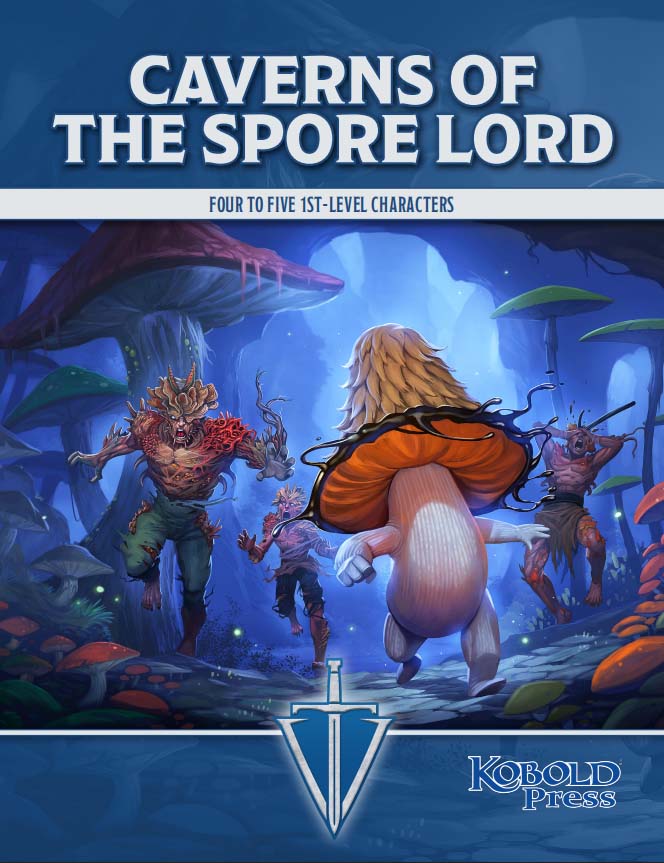
If you play a cleric, your character should have a well-defined relationship between your character and their god. Let’s explore this relationship by providing a foundation for cleric characters born with a divine purpose woven into their background.
If this is new to you, go to the archive to catch up!
Previously, we discussed acts of faith, challenges that a cleric undertakes which lead them toward their purpose in their deity’s grand plans. We also introduced key points, a measure acts of faith. When you collect enough key points, your cleric experiences a revelation.
This installment begins looking at event triggers to unlock story elements for a cleric that slowly reveal the character’s divine purpose.
Revelations
By mid-tier, through experience, a cleric should have established a relatively consistent concept of how they should uphold and employ their faith’s primary tenets. Revelations confirm these experiences and help develop core beliefs about ethics, morality, and other philosophical ideals that relate to their deity.
Revelation is divinely bestowed, and functions like a road sign to a character’s purpose. These hints to fully understanding purpose confirm that the cleric has done their due diligence and is following their deity’s intent.
Basics
Once a character gains at least 8 key points of the same type, they experience a revelation. This often occurs toward the end of the first tier. After hitting a revelation, the character is tasked with a responsibility that coincides with their divine purpose.
Once the character obtains the responsibility, continue tracking key points until you reach another revelation. Once a character has experienced three revelations, they experience epiphany and fully understand their divine purpose.
Experiencing a Revelation
Once you have collected 8 key points, you can play out a revelation in one of three ways: induced, ritualized, or spontaneous. Because the revelation is a non-mechanical story element, you can choose how your character experiences it.
Induced. A specific event triggers an induced revelation. Your character’s actions or reactions clearly define an aspect of their divine purpose. In game terms, this occurs when your cleric performs an act or action that would push key points above 8. Instead of gaining more key points, the cleric experiences a revelation.
Ritual. As part of a relationship with their deity, your cleric undergoes a ritual or rite of passage to create a spiritual awakening. The ritual may include a journey to seek the counsel of a spiritual advisor or mentor, going on a pilgrimage, or meditating and experiencing a profound vision.
Spontaneous. A spontaneous revelation occurs randomly—a cleric gains sudden clarity. There is no direct cause, rather, a character’s assorted experiences have coalesced in such a way that the path to purpose becomes clear. To simulate spontaneous revelation during a game session, every 30 minutes, roll a d6. On a 6, a revelation strikes you.
Responsibilities
Once a character experiences a revelation, they gain divine understanding: they must engage in a responsibility. A responsibility is a task. A cleric must sincerely attempt to complete that task to fulfill their purpose. Unlike standard fantasy quests, actually completing a responsibility is inconsequential! Clerics face many challenges of faith, and the task is not the purpose. The sincere attempt is the important part. After three sincere attempts, the character experiences epiphany.
Some sample responsibilities your cleric might be tasked with:
Establish a Mission. Care for a small community of individuals and teaching them of the faith. The responsibility might involve sharing survival skills with a frontier settlement or establishing a shelter or orphanage in a large city.
Launch a Crusade. Vanquish a threat instilled by forces under the command of a villainous individual. For example, your cleric might need to drive a clan of ogres from the hills near a small town or rout out agents of a murderous assassin’s guild.
Lead a Pilgrimage. Lead a group of people who trust your cleric to a sacred destination. Pilgrimage might involve an adventure, particularly to help individuals relocate or rebuild a community. Conversely, your cleric might just lead worshipers on a trip to a shrine or holy land, performed outside the game using downtime.
Restore a Holy Place. Restore a structure such as a cathedral or shrine. Your cleric might undertake an adventure to liberate a desecrated temple overrun with vile creatures or find a lost tomb. Conversely, the cleric might use downtime to restore an abandoned church.
Train a Ward. Gain a young follower who needs guidance and direction in the name of your cleric’s faith. Your cleric is responsible for their welfare and proper upbringing. The ward begins as an acolyte NPC. Tip: decide whether you or your GM will be responsible for controlling the ward in advance.
With these samples as a guide, you can come up with a few more responsibilities, perhaps specialized for your character’s ideology, disposition, and play concept. Responsibilities provide the most fun when you and the GM work out details together, allowing the GM to work the responsibility into an adventure.
The Next Step
A game isn’t much fun without conflict. Clerics have moments of doubt, questions of faith and purpose, moral quandaries, and moments of weakness. In the next blog, we’ll take a closer look at these challenges of faith.
Discover more about your character—of any class—by gazing into the Tome of Heroes. Use this book of character options to make your character special, with new backgrounds, subclasses for every class, unusual races, tons of new equipment, and much more!

